On April 10th, former Taiwanese President Ma Ying-jeou met with Chinese leader Xi Jinping in the East Hall of the Great Hall of the People in Beijing. The meeting occurred as Ma was leading a student delegation to China to visit cultural and historical sites and hold conferences at various universities. During the first part of the meeting, both Ma and Xi gave speeches before holding a closed-door meeting.
Meeting and Speeches
When Ma and Xi first met, they greeted each other and shook each other’s hands for at least 15 seconds while having a brief conversation. During the conversation, both noted how each other did not change by saying, “you haven’t changed hahahaha, you haven’t changed either.” Furthermore, they also talked about their first meeting that occurred in Singapore in 2015 before they sat at the conference table. Xi then formally greeted Ma and his delegation by saying “dear Mr. Ma Ying-jeou, hello friends,” with Ma saying “hello, General Secretary Xi” in his reply. Xi then delivered his speech, with Ma giving his afterward. Taiwan Working Group Deputy Chairman, Wang Huning and First Ranked Secretary of the Chinese Communist Party Secretariat Cai Qi also attended the meeting.
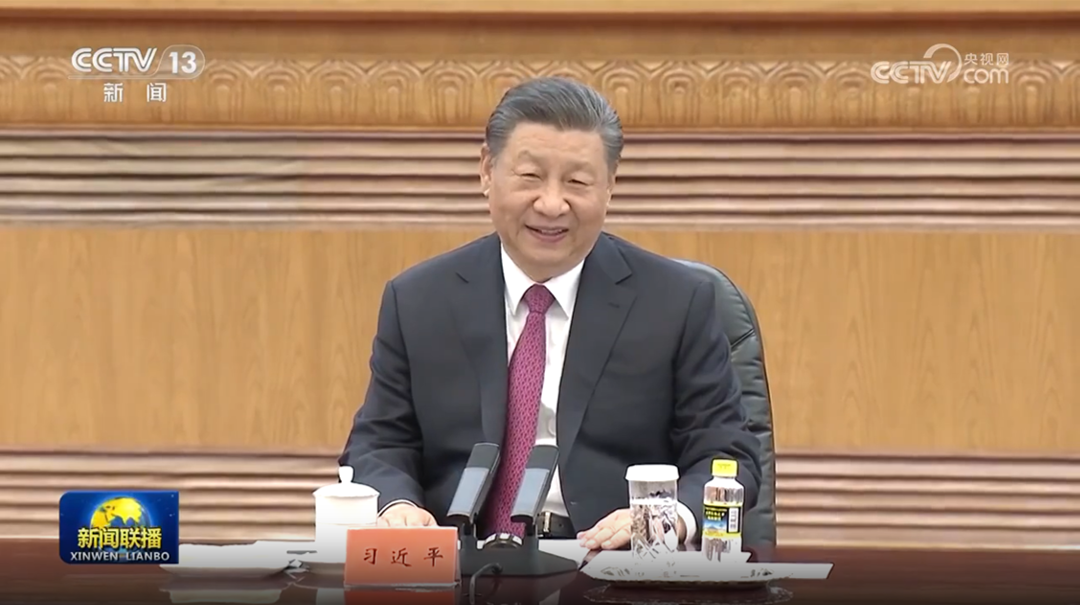
During his speech, Xi pointed out that the “compatriots on both sides of the Taiwan Strait belong to the Chinese nation” and that it is a great country in the world. He said that China created a long-lasting, splendid, and unparalleled Chinese civilian, of which every Chinese son and daughter is proud and glorious. The long history of the Chinese nation, which spans more than 5,000 years, records that our ancestors moved to Taiwan and multiplied throughout the generations, and our compatriots on both sides of the Taiwan Strait jointly resisted foreign aggression and regained Taiwan. He then pointed out that “compatriots on both sides of the Taiwan Strait are connected by blood” due to the Chinese nation wrote an indivisible history of both sides of the strait.
Xi then said that the “compatriots on both sides of the Taiwan Strait are all Chinese,” that there are no grudges or issues that cannot be resolved or discussed, and that no force can separate us (Taiwan and China). Furthermore, Xi emphasized that “difference in systems cannot change the objective fact that both sides of the Taiwan Straits belong to the same country and nation” and “external interference cannot stop the historical trend of family and country reunion.” He also emphasized that “youth are the hope of the country and the future of the nation,” and when young people on both sides of the strait are good, will the future of both sides be good. The youth on “both sides of the Taiwan Strait should strengthen their ambition, strength, and confidence to be Chinese, jointly create long-lasting well-being for the Chinese nation, and continue to write new glories in the history of the Chinese nation.”
He again “emphasized that compatriots on both sides of the Taiwan Strait have a common blood, a common culture, and a common history.” Xi then said that both sides “have a common responsibility for the nation and a common expectation for the future” and should “grasp the overall situation of cross-Strait relations from the overall interests and long-term development of the Chinese nation.” Xi then listed four ways China and Taiwan could increase the long-term development of cross-Strait relations and develop the interests of the Chinese nation.
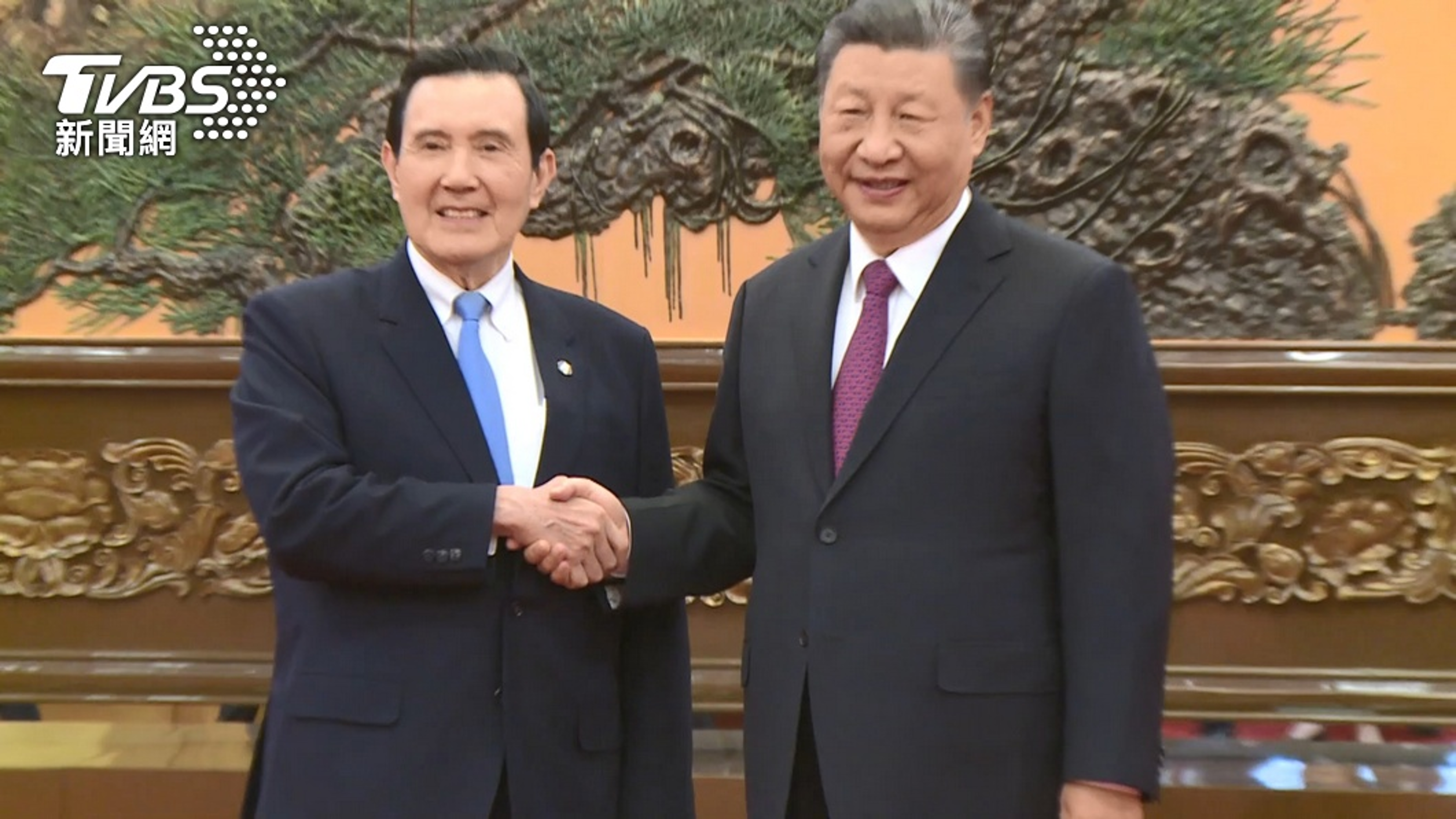
The first way is to “firmly protect the common home of the Chinese nation.” Xi pointed out that “the Chinese nation and Chinese civilization have gone through vicissitudes and hardships for thousands of years, but they have continued to thrive and continue.” He said, “the key is that the Chinese nation has always had the common belief that the land cannot be divided, the country cannot be chaotic, the nation cannot be dispersed, and the civilization cannot be broken.” Furthermore, he pointed out that a strong and unified country has always been the destiny of all Chinese people, including Tawain compatriots.” Xi also urged people on both sides of the Taiwan Strait “must resolutely oppose ‘Taiwan independence’ separatist activities and interference from external forces, firmly protect the common home of the Chinese nation, and jointly pursue a bright future of peaceful reunification.”
He also urged that both sides should “firmly hold the fate of the Chinese nation in the hands of the Chinese themselves.” Both sides should promote the peaceful development of cross-Strait relations, and the most significant means is to “adhere to the ‘1992 Consensus’ that embodies the One-China Principle. The principle is the “basic fact that both sides of the Taiwan Strait belong to the same country and one nation.” Furthermore, Xi points out that both sides could accumulate mutual trust, advance to enhance understanding, resolve conflicts, and seek consensus as long as China is not divided and recognizes that both sides of the strait are “Chinese and one family.”
Xi then discussed how both sides should “work together to create long-lasting well-being for the Chinese nation.” The starting point and goal of developing cross-Strait relations are to create benefits for compatriots on both sides of the strait and are ambitious and simple. He then said that compatriots on both sides want a better life “so all Chinese people, including Taiwan compatriots, can live a better life and jointly realize the greatness” of a rejuvenated Chinese nation and dream. China has the ability to lead the approximately “1.4 billion compatriots on the mainland to live a good life and is fully capable of working with our compatriots in Taiwan to create a better future.”
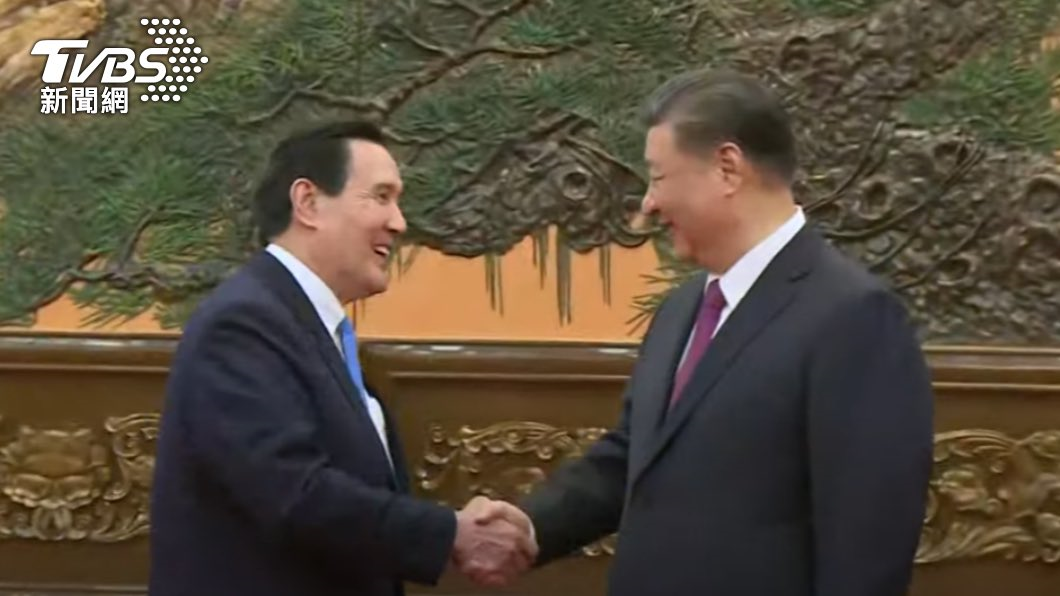
China also has the well-being of “our Taiwan compatriots in mind” and will take the lead in “sharing the opportunities for China-style modernization development with our Taiwan compatriots.” Furthermore, China will also share the mainland’s development and progress achievements and actively do good and practical things and solve problems so that our Taiwan compatriots can gain more benefits and realize their well-being and a better future.
The third way is for both sides to “firmly build a sense of community for the Chinese nation.” Throughout history, China jointly built the motherland’s territory, which also includes Taiwan, and jointly wrote Chinese history, created Chinese culture, and cultivated the national spirit. Xi then said that “compatriots on both sides of the Taiwan Strait have always been one family” and that they should come and go as they please to get closer since people on both sides of the strait have always been “one family.” China will “take more effective measures to actively promote cross-Strait exchanges and integration, so that compatriots on both sides of the Strait can have heart-to-heart conversations in exchanges and integration, increase trust in exchanges, and promote spiritual harmony.”
Xi also said that China “sincerely invites Taiwanese people to visit the mainland more often,” and the country is happy to see Chinese people visit the motherland’s treasured island [Taiwan] more often. He also said that Chinese culture is the spiritual lifeblood of the Chinese nation and the common spiritual homeland of compatriots on both sides of the strait. Xi then said that both sides “must strengthen their confidence in Chinese culture and consciously be the guardians, inheritors, and promotors of Chinese culture.” Both sides should also enhance the sense of belonging, identity, and honor of the Chinese nation and forge a solid sense of community among the Chinese nation.
The last way Xi pointed out was that both sides should “firmly realize the great rejuvenation of the Chinese nation.” Xi said that “after a century of struggle, we have successfully embarked on a Chinese-style modernization path and ushered in a bright prospect of national rejuvenation.” China not only realized the blueprint drawn by Dr. Sun Yat-sen back then but also created many achievements that far exceeded Sun’s imagination. He then said that the “historical wheel of national rejuvenation is rolling forward, embodying the struggle, and sweat of compatriots on both sides of the Taiwan Strait.” Xi then pointed out that national rejuvenation requires people on both sides “to work together and continue to struggle, and it will eventually be realized in the struggle of compatriots on both sides of the Taiwan Strait.”
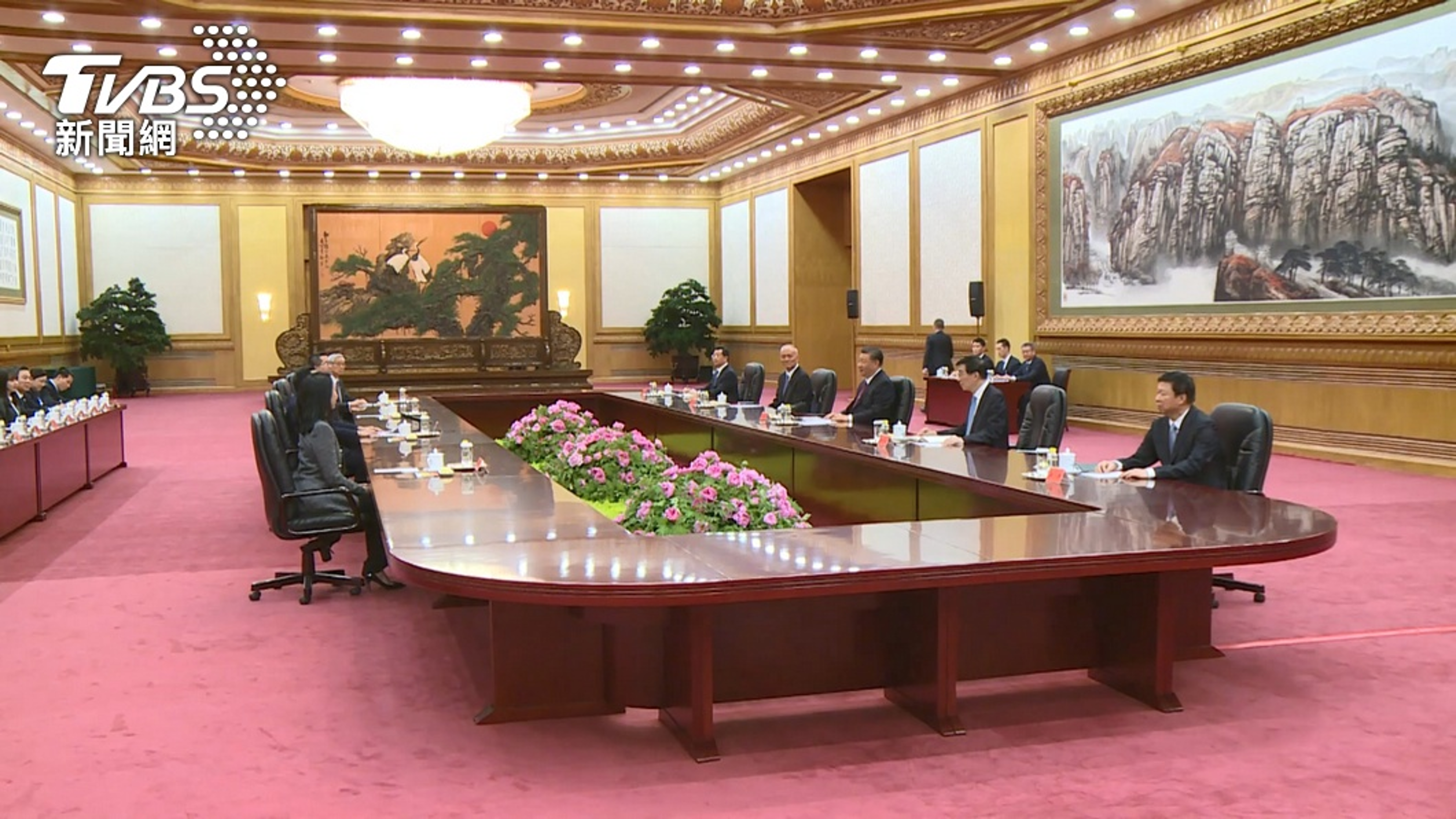
Young people on both sides of the strait “will certainly have great potential and will certainly make great achievements.” Xi then said China welcomes young people from Taiwan to come to the mainland to build, pursue, and realize their dreams and “will continue to create better conditions and more opportunities for young people on both sides of the Taiwan Strait to grow, become talented, and succeed.” He also said that China hopes that youth on both sides of the strait will “learn from each other, rely on each other, walk together with one heart, run the baton of history well, and contribute their youthful strength to the realization of national rejuvenation.”
Ma then delivered his speech after Xi; he first pointed out that he brought young Taiwanese students “to visit the mainland and thanked the mainland for their warm reception.” The students, according to Ma, had a deep understanding of Chinese culture and “experienced the feelings between the two sides of the Taiwan Strait that blood is thicker than water.” Ma said that the Chinese nation (Ma used the Republic of China before changing his words) has experienced a hundred years of humiliation in the past. However, “in the past 30 years, Taiwan has jointly moved towards the Chinese nation step by step” through the efforts of Chinese people on both sides of the strait.
Ma said that “on the road to revitalization, although the two sides of the Taiwan Strait have developed under different systems,” people on both sides of the strait are descendants of the Yan and Huang Dynasties and should be committed to revitalizing China. Ma pointed out that he took Taiwanese youth to visit Chinese universities last year, and the exchanges between both sides were natural and unstoppable. For Taiwan, Ma said, “there will be no stable and happy Taiwan without stability and peace” on both sides of the strait. Furthermore, Ma said that “for the Chinese nation, without peace and prosperity on both sides of the Taiwan Strait,” there will be no bright and prosperous future.
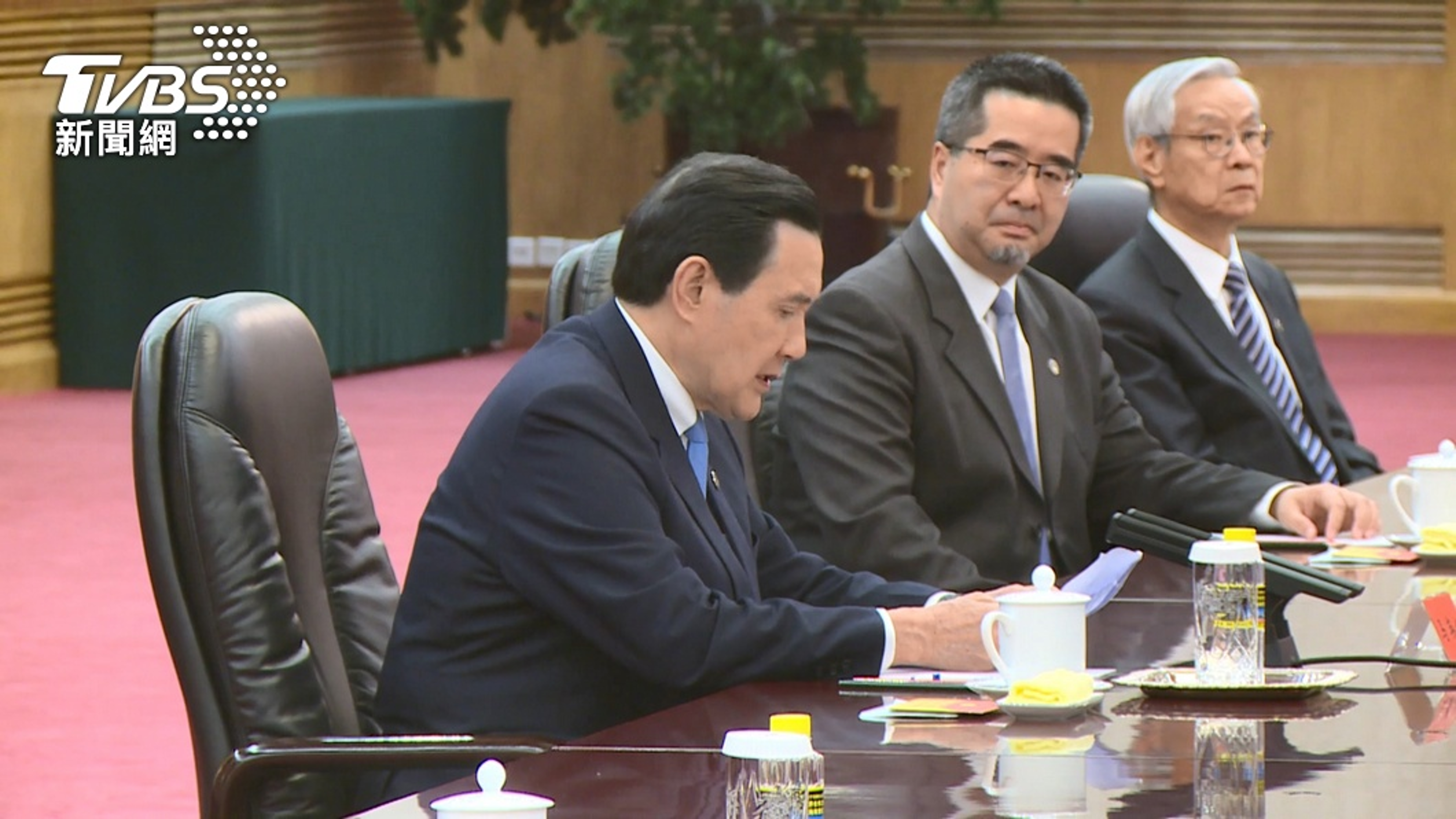
He then said that “he sincerely hopes that both sides will pay attention to the true values and lifestyles of the people, safeguard cross-strait peace, and use the wisdom contained in Chinese culture to ensure mutual benefit and win-win results for both sides of the strait.” Furthermore, Ma said that “the recent tensions across the strait have caused uneasiness among many Taiwanese people.” He then quoted Lu Xun, “brothers are here Jinjiebo, and we smile when we meet.” He then said it would be an unbearable burden for “the Chinese nation” if war broke out between the two sides of the Taiwan Strait.
The Chinese people on both sides of the strait “definitely have enough wisdom to peacefully handle cross-Strait disputes and avoid conflicts.” Ma then pointed out that in 1992, both sides of the strait stated verbally that “the two sides of the Taiwan Strait adhere to the ‘One-China Principle’ consensus.” In the future, “both sides of the strait should ensure the well-being of the people” and “adhere to the 1992 Consensus, oppose Taiwan independence, seek common ground while reserving differences, put aside disputes, create a win-win situation, and pursue peaceful development.”
Ma then stated that he sincerely hopes that both sides will work together for mutual benefit and common prosperity and work together to revitalize China so the “Chinese nation can hold its head high in front of the world.” Ma was about to discuss the 2015 Ma-Xi meeting and the importance of the 1992 Consensus, but staff removed the reporters from the hall.
Analysis
Both Ma and Xi’s speeches indicate the types of influence operations China will use to increase its influence in Taiwan as well as what groups they will target. Furthermore, they also provide insight regarding the type of narratives that China and pro-China individuals, such as Ma, will use to push for increased cooperation between Chinese and Taiwanese people.
Both speeches mention how youth are key to the future of the Chinese nation and good relations in the Taiwan Strait. The reason why is due to their susceptibility to the narratives that China would use, especially during cultural exchanges like the one Ma led, to influence their opinion to become more favorable to greater cooperation and integration. These individuals would then, in turn, be more receptive to increased economic and trade cooperation and integration with China. Furthermore, some of these individuals will likely occupy government positions in either the Taiwanese government or the Kuomintang (KMT). These individuals would be in a position to enact laws and policies that would enable this increased cooperation with the goals of integration and unification.
Xi’s discussion of increasing the number of exchanges that occur between Chinese and Taiwanese is another way China will attempt to increase its influence. Xi’s comments about wanting more Taiwanese to visit China will increase the promotion of cross-strait exchanges. The reason why Xi wants to increase the exchanges is so the Taiwanese individuals can visit the country and develop the sense that they are part of the Chinese nation. Furthermore, China also hopes that the Taiwanese who visit the mainland will develop a more favorable, pro-China view after the trip. Xi’s comments about China being happy to see more Chinese people visiting Taiwan are also part of increasing the number of exchanges between both sides. He believes that by increasing the number of Chinese people who visit Taiwan, they will also see that they are fundamentally one people. These people would also be more willing to see Taiwan be ‘reunified’ with China.
Furthermore, China hopes that through these trips, both Chinese and Taiwanese will see that they are ultimately one Chinese nation due to a shared culture, history, and tradition. This narrative fits into the overarching theme in Xi’s speech, especially the four points he outlined: that both sides of the Taiwan Strait are Chinese. This attribute is so strong that no issue or grudge can significantly harm China and Taiwan’s relationship, and its unification cannot be stopped by external forces. Xi and Ma also pointed out in their speeches that they are still the same Chinese nation or family, even if both countries have different systems. Both individuals also discussed how China is now on the path of Chinese-style modernization after overcoming the hundred years of humiliation. Xi used the narrative that the Taiwanese people could partake in and create a better future from this national rejuvenation, both economically and in terms of trade. However, the people would only be able to do so if they had good relations with the mainland, i.e., increased cooperation and integration.
However, the meeting also indicated that both sides did not want to cause any significant difficulties, especially related to any comments Ma could have made during the meeting. The most visible aspect is that the meeting was held in the East Hall instead of the Fujian or Taiwan Halls, as widely speculated. Both sides likely wanted to reduce the potential for the Democratic Progressive Party (DPP) to use it to show that the KMT is pro-China. Furthermore, both sides likely wanted to reduce the overall political sensitivity of the meeting by holding it in a neutral location rather than in a hall that would reinforce China’s narrative.
While Ma did not make comments that were pro-China or called for the unification of Taiwan with China, he still made comments that did not reflect greatly on him or the KMT. The most notable example is when he called Xi “General Secretary” instead of Mr. during the first part of the meeting, which could be interpreted as him showing respect to Xi as the Chinese Communist Party General Secretary. Furthermore, he used General Secretary instead of President, which may indicate that he places more importance on Xi’s party title than his bureaucratic title of President.


